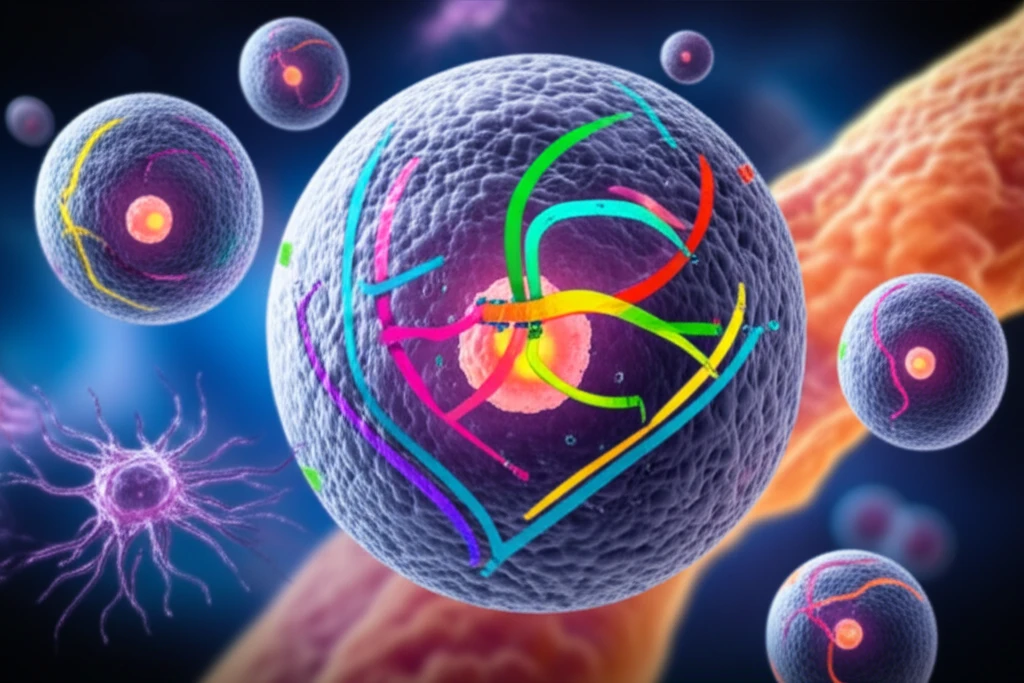
Cancer Stem Cell Secrets: How Akt Isoforms Control Survival and Growth
"Unlocking new therapeutic approaches by understanding the specific roles of Akt isoforms in cancer stem cell behavior."
The cancer stem cell (CSC) hypothesis suggests that tumors are maintained by a unique subpopulation of cells possessing stem cell-like properties. These cells, initially identified in leukemia, have also been found in solid tumors, such as brain tumors, where a CD133+ cell subpopulation exhibits stem cell characteristics in vitro and the ability to initiate tumors in vivo. Targeting these CSCs is a key focus in cancer research, with the aim of developing therapies that can eradicate the root of tumor growth and recurrence.
Central to CSC survival and function is the Phosphoinositide 3-kinase (PI3K)/Akt pathway. This intricate signaling network plays a crucial role in cell growth, survival, and self-renewal. Researchers are particularly interested in how different isoforms (variants) of Akt contribute to these processes, as understanding their specific roles could unlock more targeted therapeutic interventions.
This article explores the data demonstrating how elements of the PI3K/Akt pathway, particularly PI3K Class I and Akt2, are essential for maintaining the CSC-like phenotype and ensuring CSC survival. It summarizes the evidence supporting the idea that each Akt isoform has a distinct and important role in CSC growth, self-renewal, survival, and epithelial-mesenchymal transition (EMT) not only in breast cancer but also in glioma. By understanding how these isoforms function, researchers hope to develop new therapeutic strategies to combat cancer.
Akt Isoforms: Key Players in Cancer Stem Cell Development

Akt, also known as protein kinase B (PKB), is a crucial protein involved in various biological processes, including metabolism regulation, cell growth, survival, and proliferation. It belongs to the AGC family of kinases and is activated by a range of extracellular signals through class I PI3K. In mammals, there are three main Akt isoforms: Akt1, Akt2, and Akt3, each encoded by different genes.
- Akt1: Accelerates the induction of mammary tumors and plays a fundamental role in the propagation of tumors.
- Akt2: Can promote the metastasis of tumor cells and inhibits apoptosis, delaying tumor involution.
- Akt3: Downregulation inhibits growth in three-dimensional spheroid cultures and in mouse xenograft models, improving survival in a rodent model of GBM.
Future Directions: Targeting Akt Isoforms for Cancer Therapy
The research highlighted in this article underscores the importance of Akt isoforms in maintaining CSC characteristics and promoting tumor growth. Understanding the specific roles of each isoform opens the door to developing more targeted cancer therapies. Future research will need to focus on how to effectively target Akt isoforms in CSCs to disrupt their survival mechanisms and prevent tumor recurrence.
Several open questions remain, including how protein isoforms play specific roles in ensuring CSC survival and avoiding apoptosis, and how CSC and EMT phenotypes are interconnected with tumor growth. Further investigation into these areas will be crucial for designing effective therapeutic strategies.
By unraveling the complexities of Akt isoform signaling in CSCs, researchers hope to pave the way for innovative treatments that can overcome the limitations of current cancer therapies and improve patient outcomes. These advances promise a new era of precision medicine, where treatments are tailored to the specific molecular characteristics of individual tumors.
